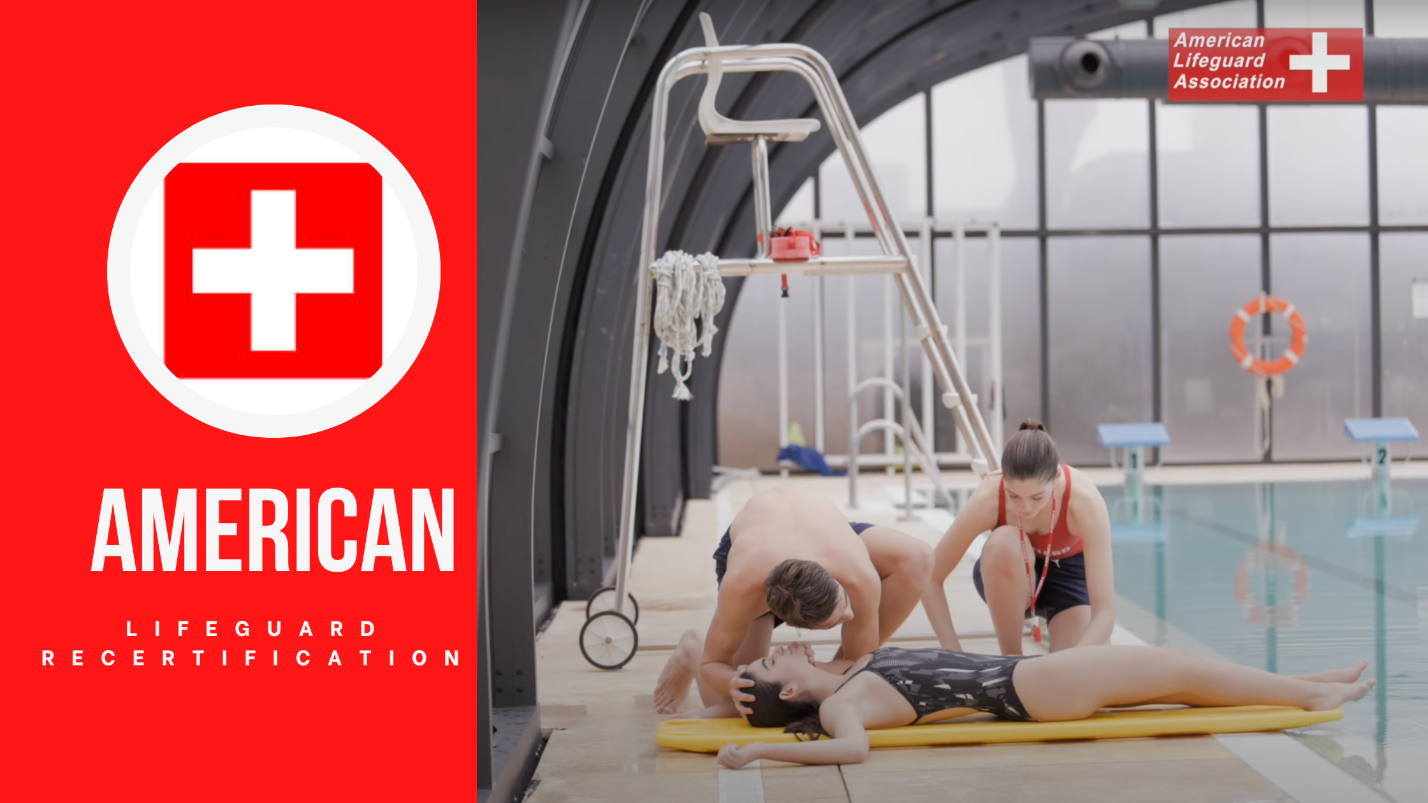
As a lifeguard, your primary responsibility is to keep people safe in the water. To do this effectively, it is essential to have the right skills and knowledge. This is where lifeguard recertification comes into play. In this article, we will discuss what is it and why it is important, and how to prepare for it.
Lifeguard training is Essential for Serving as a Lifeguard
Lifeguard training provides individuals with the knowledge, skills, and confidence needed to effectively respond to emergencies and keep people safe in the water. Lifeguard classes cover a wide range of topics, including water safety, rescue techniques, first aid, CPR, and more.
These skills are essential for lifeguards to perform their duties effectively and provide a safe environment for the public. In addition, training programs also help individuals understand their responsibilities as a lifeguard and the importance of being alert and ready at all times. Without proper training, it can be difficult for individuals to perform their duties effectively, putting the public at risk.
What is a Lifeguard certification?
Lifeguard certification is a process that verifies an individual has completed a comprehensive lifeguard training program and has demonstrated the skills and knowledge necessary to perform the duties of a lifeguard. The certification process usually involves passing written exams, physical tests, and practical skills demonstrations.
Upon successful completion, the individual is awarded a certificate that serves as recognition of their training and abilities. The purpose of lifeguard certification is to ensure that lifeguards are equipped with the knowledge and skills necessary to respond to emergencies and keep people safe in the water. It is also an assurance to the public that lifeguards have been properly trained and are equipped to perform their duties effectively.
What is Lifeguard recertification?
Lifeguard recertification is a process in which lifeguards renew their certification. The frequency of recertification varies depending on the certifying organization, but it is typically done every two years. The purpose of recertification is to ensure that lifeguards remain up-to-date with the latest techniques and technologies in water safety and rescue.
Requirements for Lifeguard recertification
To become recertified, lifeguards must meet certain requirements. These may include physical tests, written tests, and practical skills demonstrations. Physical tests typically involve activities such as swimming and performing rescue simulations. Written tests assess a lifeguard's knowledge of water safety, first aid, and CPR. Practical skills demonstrations evaluate a lifeguard's ability to perform rescues and provide first aid in simulated emergency situations.
Benefits of Lifeguard recertification
Recertifying as a lifeguard has several benefits. Firstly, it helps keep your skills sharp and ready for any situation. Lifeguards are also updated with new techniques and technologies in water safety and rescue, which can be invaluable in an emergency. Additionally, recertification ensures that safety standards are maintained, giving the public confidence in the lifeguards who are tasked with keeping them safe.
Preparing for Lifeguard recertification
Preparation is key to passing the lifeguard recertification process. To prepare, lifeguards should familiarize themselves with study resources, such as textbooks, online courses, and practice exams. Physical fitness is also critical, as lifeguards must be able to perform rescues and provide first aid effectively. Practicing skills and simulating rescue scenarios can also be helpful in preparing for the practical skills demonstration.
Common Challenges during Recertification
The lifeguard recertification process can be challenging, and it is important to be aware of the most common obstacles. Physical challenges, such as the demanding physical tests, can be difficult for some lifeguards. Written test anxiety can also be a problem, but studying and familiarizing yourself with the material can help alleviate this. Performing well in the skills demonstration can also be nerve-wracking, but practicing beforehand can help build confidence.
The Importance of Lifeguard recertification
The American Lifeguard Association (ALA) recognizes the importance of lifeguard recertification, as it helps ensure that lifeguards remain knowledgeable, skilled, and ready to respond to any emergency that may arise.
Recertification also allows lifeguards to stay current with the latest water safety and rescue techniques, which are critical for preventing accidents and saving lives. Additionally, it helps maintain the public's confidence in lifeguards and the lifeguard profession as a whole.
Why Choose the American Lifeguard Association for Lifeguard training and Recertification
The American Lifeguard Association is a leading provider of lifeguard training and certification, offering comprehensive programs that are designed to meet the needs of lifeguards. With a focus on safety, the ALA provides lifeguards with the skills and knowledge they need to respond to emergencies and save lives.
ALA also offers a variety of training options, including online courses, in-person courses, and recertification courses, making it easy for lifeguards to renew their certification. With its commitment to quality and its commitment to the lifeguard profession, the American Lifeguard Association is a great choice for lifeguard training and recertification.
Visit Here: Lifeguarding is the best summer job
Conclusion
Lifeguard recertification is essential for lifeguards to remain up-to-date with the latest techniques and technologies in water safety and rescue. It also helps maintain safety standards, ensuring the public's confidence in lifeguards.
Preparing for recertification by studying, staying physically fit, and practicing skills can help overcome common challenges and ensure success in the process. Remember, recertifying as a lifeguard is a crucial step in maintaining your ability to effectively keep people safe in the water.
 icons at the top right corner of the subsection.
icons at the top right corner of the subsection.